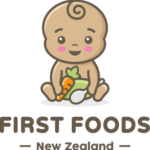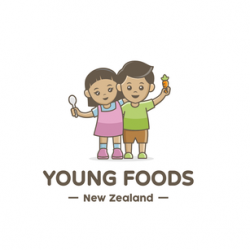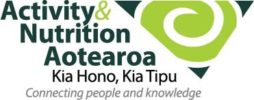31 Aug First Foods study


What are pēpi and tamariki really eating in Aoteoroa?
The biggest dietary change in every human’s life is from consuming a 100% milk diet in the first months of life to consuming a diet that is broadly the same as the rest of their family by their first birthday. These changes are huge, and yet we know astonishingly little about this journey in New Zealand pēpi. Our last Children’s Nutrition Survey was almost two decades ago and did not include tamariki under five years of age. There is no doubt that times have changed. In fact, there has been a revolution in infant feeding in recent times, in particular, the new phenomena of baby food ‘pouches’ and ‘Baby-Led Weaning’ (BLW).
‘Pouches’ are a ‘mess-free and easy alternative for baby food on-the-go’ that many parents love as illustrated by their extraordinary market share (just look on any supermarket shelf to see how popular they are). However, we don’t know a lot about these pouches and the potential impacts – good or bad – they may have on energy intake, eating behaviour, or dental health. Various countries around the world have expressed interest in the food composition of these pouches and how children and whānau are using them – but research investigating their potential health effects is almost non-existent.
Anecdotally, BLW is also a very popular approach in New Zealand. In BLW, the infant feeds themself all their foods from the start of the ‘complementary feeding’ period – this means no spoon-feeding by a parent, and only ‘finger foods’ are offered. BLW differs considerably from the more traditional approach recommended by the NZ Ministry of Health in which the infant gradually learns how to eat solid foods safely by eating foods with progressively increasing textures from puréed to mashed to chopped to whole. Like pouches, we don’t know a lot about BLW. However, health professionals have expressed some concern about this alternative way of introducing infants to solids, particularly about potential increased risks of iron deficiency, growth faltering, and choking.
And so, the First Foods NZ and Young Foods NZ studies were born! These two studies will collectively measure nutrition and health in 900 pēpi and young tamariki in Dunedin, Wellington and Auckland over the next two years. The principal investigators are Associate Professor Anne-Louise Heath (Human Nutrition) and Professor Rachael Taylor (Medicine) from the University of Otago, with other team members based at Victoria University of Wellington and Massey University (Albany Campus).
Collectively, the team will measure food and nutrient intake (including foods of importance to Māori and Pacific whānau) using repeated 24-hour recall interviews supplemented by photo images of food intake (which help parents or caregivers recall food and drink items). However, one of the major challenges when collecting dietary data in pēpi is that while infant formula intake can be accurately measured, breast milk intake can only be inferred – a crucial problem given milk remains a major source of nutrients at this age (>50% of energy at 7 months). The First Foods NZ study will obtain accurate data on breast milk volume using the stable isotope (deuterium oxide) ‘dose-to-mother’ technique in a random sample of mothers. This nifty technique uses a simple collection of saliva from both mother and child to determine how much milk the child has consumed to a very accurate level. Other important measurements include the examination of dental health in each child via knee to knee oral examinations based on detailed photographs of the child’s upper and lower teeth.
We hope to have final results ready for dissemination in 2022 so watch this space. Both studies are currently recruiting pēpi and tamariki in Dunedin, Wellington and Auckland. If interested, please go to www.firstfoods.co.nz.
Investigators: Associate Professor Anne-Louise Heath, Professor Rachael Taylor, Dr Lisa Daniels, Dr Jill Haszard, Professor Lisa Houghton, Ms Jenny McArthur (University of Otago), Associate Professor Pamela von Hurst, Associate Professor Cath Conlon, Associate Professor Kathryn Beck, Dr Riz Firestone (Massey University), Dr Lisa Te Morenga, Dr Tia Neha (Victoria University of Wellington).

